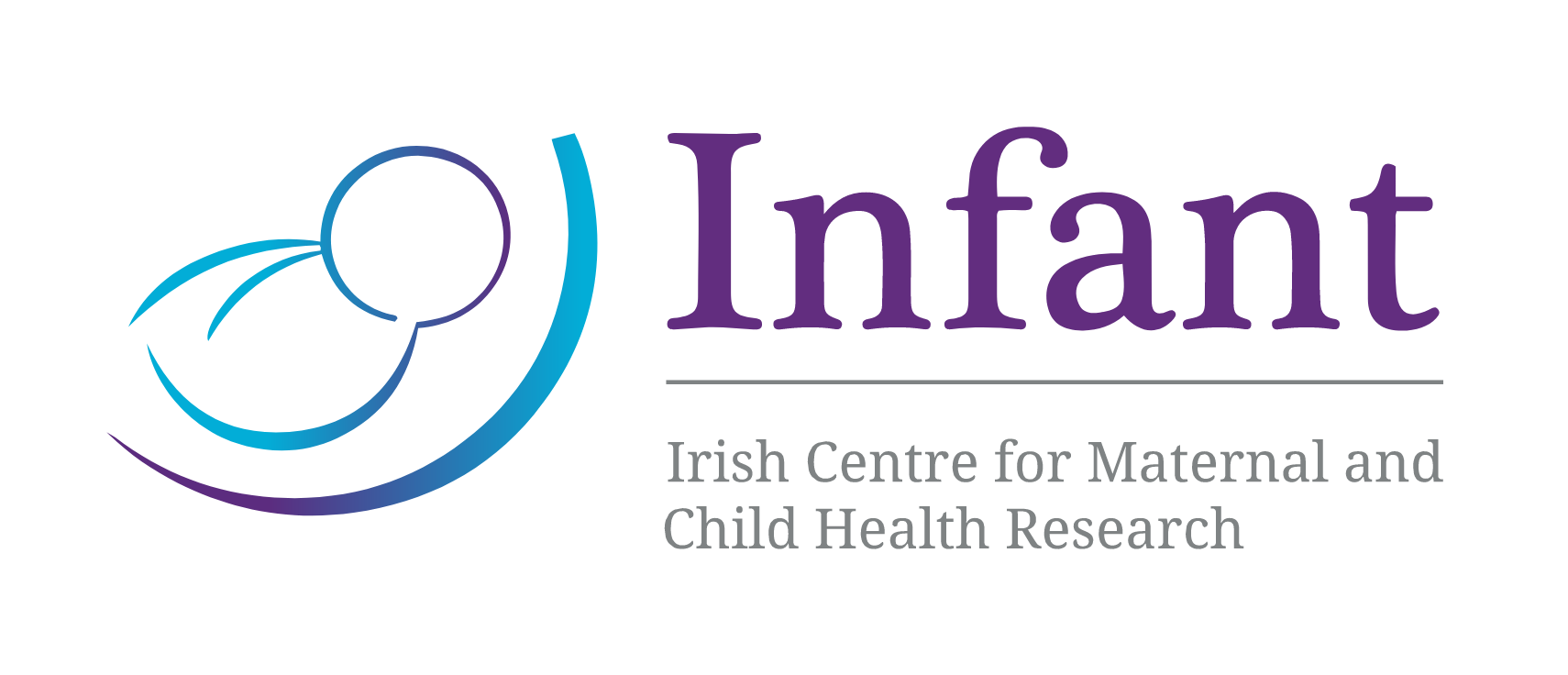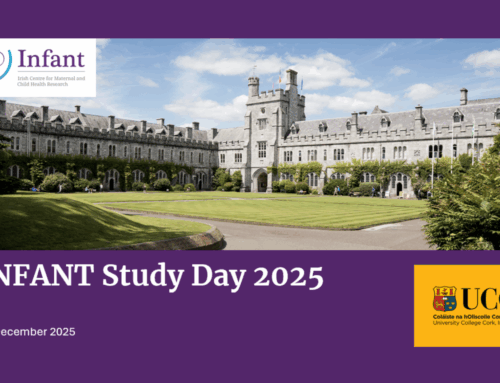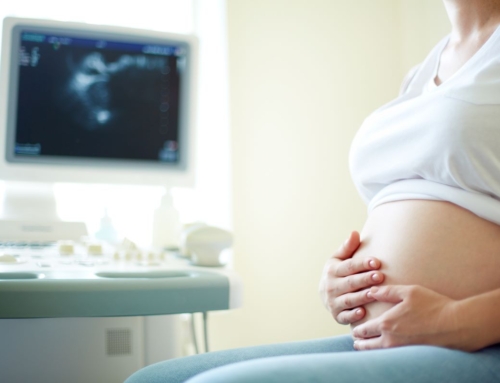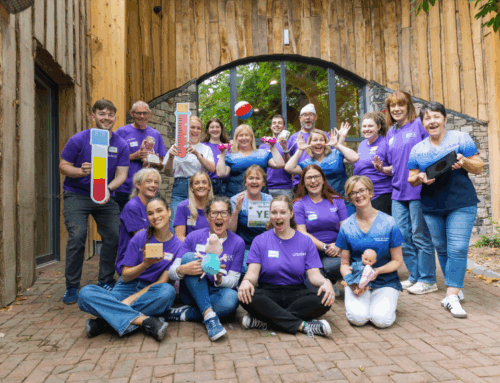Wednesday 18 December 2019
Taken from UCC’s Independent Thinking Magazine.
INFANT is the wonderfully appropriate name for the leading research centre focused entirely on pregnancy, birth and early childhood – and which is perched in a bright and colourful facility on top of the Paediatric Day Unit at Cork University Hospital.
As Ireland’s only dedicated research centre spanning maternal and child health, it is a hub that houses a passionate and enthusiastic team of close to a hundred, led by one of its two co-founders and now sole director, Professor of Neurophysiology, Geraldine Boylan.
Although it’s only six years old, INFANT is already firmly placed on the global map as a world leader in its field, as a result of breakthroughs in neonatal seizure detection, pre-eclampsia, neonatal brain injury, maternal nutrition, and childhood allergy.
For example, the ANSeR (Algorithm for Neonatal Seizure Recognition) study, headed up by Geraldine, created an algorithm that can detect seizures in newborn babies, alerting the healthcare team that the baby may need help. This enables the team to treat seizures promptly and improve the long-term outcomes for children who have had a difficult start in life.
The centre has licensed the algorithm to a Japanese company who have added the software into their monitoring machines, and the UCC technology is already in use in neonatal units in hospitals in Japan.
Another breakthrough – this time by the IMPROVED project team – is the development of a blood test with the potential to predict pre-eclampsia risk, by measuring biomarkers with unprecedented accuracy. With conservative estimates of pre-eclampsia and other hypertensive disorders being responsible for 76,000 maternal and 500,000 infant deaths each year, this could have groundbreaking effects globally.
While around 10% of all newborn babies end up in a neonatal unit — some with minor problems and others very sick — Geraldine points out that most parents are blissfully unaware of the type of complications some newborns can experience – until their child is born with a problem.
“It’s so traumatic for a parent when a baby is born prematurely or unwell – and they walk into this unit where their tiny baby is surrounded by tubes, monitors and alarms. It is scary and it can be overwhelming, but they are in an environment where they will get the best possible care for their baby,” she says.
The professor can’t speak highly enough either of the amazing nursing and medical staff that work in the maternity and neonatal units at Cork University Maternity Hospital (CUMH) and in units all over Ireland: “There is so much bad press about frontline staff and lack of funding in the health service, but I see on a daily basis how hard these people work. They work day and night delivering babies and caring for women and sick infants, while often juggling their own families and childcare and at the same time working extra shifts when needed at the drop of a hat.”
It is well recognised that hospitals that have a research centre such as INFANT, which is integrated into a clinical care setting, have better outcomes for patients and higher overall standards of care, she points out.
INFANT is also Ireland’s leading partner in conect4children, a pan-European research network which is carrying out clinical trials to develop better treatments for children.
“Our aim is to ensure that Irish children participate in the best trials available across Europe. About 60% of current drugs used for children were developed for adults. We often use a smaller dose of the drug for children – but children are not small adults; their physiology and how they handle drugs is very different to adults. The gold standard for safe drug use is to test using randomised controlled trials which need to be done for children also,” explains Geraldine.
As well as the development of drugs and devices specifically for children, INFANT is involved in research in a wide range of areas from eczema and allergies to stillbirth and pregnancy loss, and optimal nutrition for premature babies.
The centre was founded with Science Foundation Ireland (SFI) funding which ended in May of this year, so it’s now standing on its own two feet, as such: “It’s a new phase for us, a very exciting phase. We were very grateful to get SFI funding to set the centre up, and over the last six years we have built up an amazing and talented team of people here. INFANT has now moved into the toddler phase and we are growing and evolving and adding new team members all the time,” Geraldine says.
Just as INFANT is growing up, so too are the newborn babies who were the focus of much of the early research. The centre expanded to the third floor – a brand-new extension at CUH, which opened last year and was funded through the university and philanthropy.
It now has its own state-of-the art development assessment unit headed by a senior neuropsychologist, ensuring that all babies are followed up, into and throughout the childhood years.
“We are really delighted with this assessment unit. We regularly have international visitors here at INFANT and they can’t believe the purpose-built set-up we have here for doing assessments. My challenge as director is to sustain this unit and the team, to ensure we can follow up every child who participates in research into their teenage years,” says Geraldine.
The idea, she explains, is to see how the complications these children experienced as newborns or in the womb affects them as they grow, and to ensure better outcomes through assessment and early intervention. It’s very hard to get funding for this kind of research – but Geraldine says she is never going to stop trying.
One research team, for example, is investigating the right balance of nutrition for growing preterm babies. INFANT is also heading a team that is developing a new drug for children at risk of peanut allergy.
Another project is focused on identifying babies who will develop severe eczema, while the neonatal brain team have identified biomarkers in the blood for severe brain injury in babies.
NFANT researchers are also trying to understand the underlying causes of pregnancy loss and stillbirth and are looking at mothers’ experiences of maternal morbidity, to bring these issues to the forefront and begin conversations between patients, healthcare providers and the community.
A panel of parents of sick children who have been through the neonatal unit at CUH, and families who have experienced complications of pregnancy, is being set up to provide input into the design and development of parent information leaflets and future research projects at INFANT.
Geraldine expresses deep gratitude to the staff in the maternity hospital and the paediatric unit, who manage to find the time during their incredibly busy workdays to support and facilitate INFANT research. The ever-growing talented multidisciplinary team includes clinical researchers, scientists, engineers, computer scientists, physicists and nurses, and her own enthusiasm and passion is infectious, no doubt.
“You need the right team and the right people, and we have been very lucky in INFANT with our amazing team of people here, which is our major strength. It’s very rare to get a centre with all this different expertise together in one place,” she says.
“We have a talented and enthusiastic pool of PhD students and post docs – the next generation who, I hope, will continue on the work we started and build on it. We have so much more to do, so many areas we have not even scratched the surface of yet, in terms of the research we need to do.”




